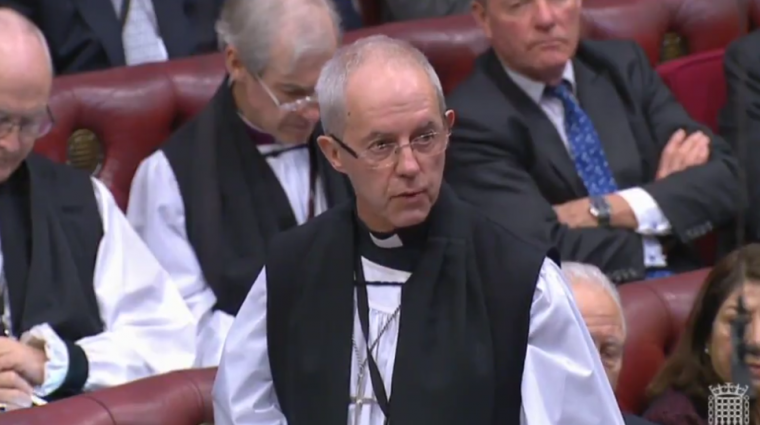Brexit needs to offer 'hopeful vision' for the nation, says Archbishop of Canterbury

The Archbishop of Canterbury has told peers that Britain's withdrawal from the European Union must be underpinned by hope.
In an address to the House of Lords on Wednesday, Archbishop Justin Welby said that even though he was a remainer, he 'fully' accepts the outcome of the 2016 referendum 'which must now be implemented'.
Cautioning peers, he said any decisions on Brexit needed to take the long-term consequences into consideration as he urged politicians not to be caught up in 'just the immediate politics'.
He said that after reading both the withdrawal agreement and the political declaration it was clear that 'so much is left open' in deciding Britain's future, and its relationships with the European Union and rest of the world.
In 'choosing a new path', he said the Brexit process needed to offer hope and reconciliation.
'It must reflect a genuinely hopeful vision for our nation and its place, because there is a hope and global influence, a vision of that, to be grasped in this country with proper leadership,' he said.
'Second, whichever way we go there is a requirement for national reconciliation, for restating what the noble Lord, Lord Sacks, calls core values of civilised discourse, and for ensuring they are lived out.'
He continued: 'Reconciliation is an area for civil society, for faith groups, but it is also largely the responsibility of any government,' he said
'It is a process that takes generations and thus will affect not only the current government but subsequent ones.'
The Archbishop said that the 'negative impact' of the first referendum on Brexit two years ago made it possible that another referendum could take place but he said this was a 'not immediately preferable choice' and should only happen 'if parliament has failed in its responsibilities'.
He went on to warn that Brexit was in danger of having an 'adverse' impact on Britain's economy and increasing levels of poverty and unemployment.
'But the risk we face now is not a decision to leave without an agreement: it is an accidental leaving without an agreement. Something that no single person chooses as their ideal,' he said.
'And if that happens, or even with some of the other options we have, there is a significant danger of adverse economic affect, with a fall in government revenue, rise in unemployment and greater poverty.'
He continued: 'It must be the clear policy of this and all future governments, after so many years of austerity borne most often by the poorest, that the burden of the transition to a post-EU economy, if there is a burden, must be carried by those with the broadest shoulders, the wealthiest, and not by further cuts, whether in local services, social care, benefits, the armed forces, climate change budgets, education or others that have lost so much in recent years.'











